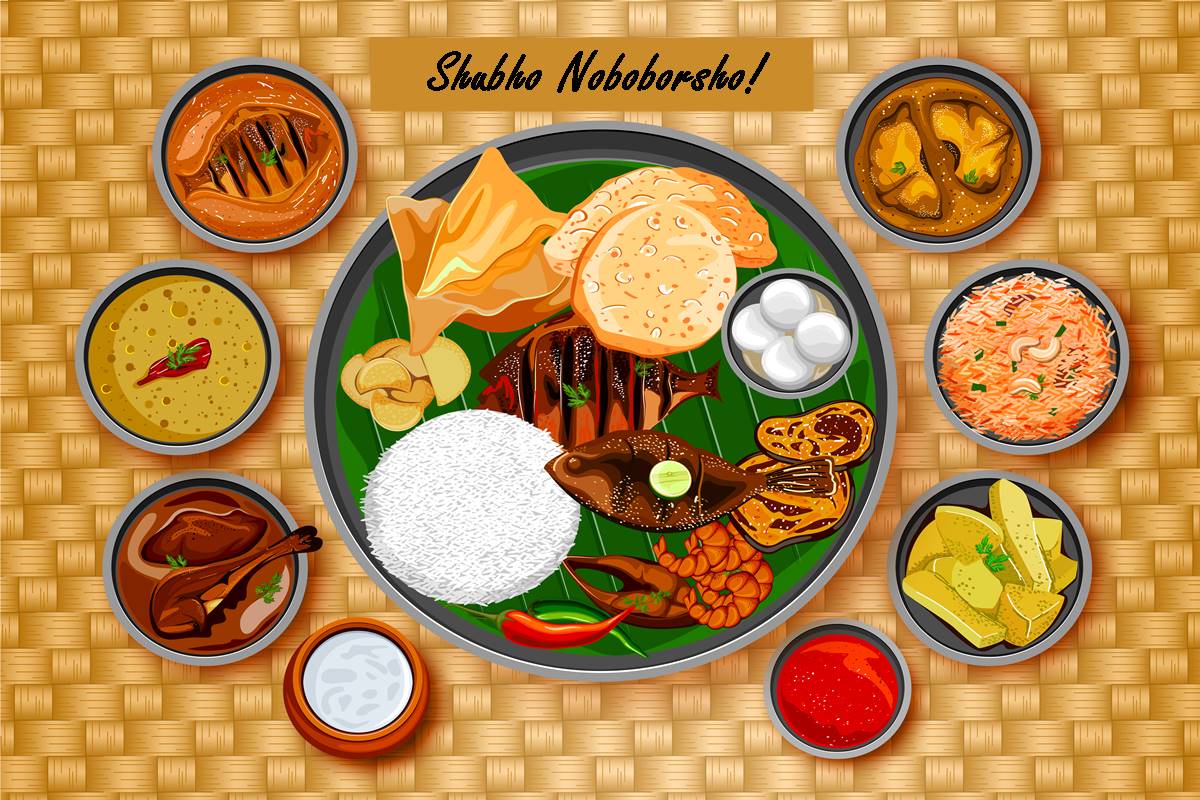A tale of two rivers
So from this Bengali New Year on, let your taste buds get ready for twists in the tale of the Ganga and Padma rivers, as offered by various chefs and food enthusiasts.
The silver lining is that, while the frills have changed, the traditional warmth provides an all-too-brief respite from tensions flowing from districts to the city of Kolkata

(Photo: Getty Images)
The first working day of the week that coincided with Poila Boishakh will turn out to be a blast as it always is. Shops have already got a fresh coat of paint and doing their best to prolong the Chaitra bonanza for incurable shoppers who never miss what seems to be a great opportunity for the best bargains.
Whether there is indeed a bargain is anyone’s guess. But this is the time when business matches the high point of the pre-puja weeks. But there is much more to the Bengali New Year than new clothes and shoes that make Monday a colourful spectacle. The irresistible mixture of culture and cuisine will extend from affluent classes that make a beeline for expensive restaurants to lovers of music and dance. There was a time when the Bengali New Year was the starting point of a music festival that echoed from the Rabindra Sadan campus and found similar festivals being held in parks and community centres. It was one way of discovering musical prodigies to be groomed to the level of popular films.
Advertisement
READ | Shubho Noboborsho 1426: Happy Poila Boishakh/Pohela Boishakh images; wishes, greetings in English, Bengali
Advertisement
But the music scene is no longer what it was a few decades ago when Poila Baisakh was the best time when music companies flooded the market with new albums. The digital era has had a crippling effect not only on the music industry but also on creative instincts. Why take the trouble of spending months on a single composition when the best commercial offering for a Poila Baisakh film is no more than a random concoction of tunes gathered from diverse sources. If the final product finds its way into the hearts of young listeners who cannot be separated from their earplugs, no one is in a mood to complain. The truth, however, is that Poila Boishakh in its traditional form was all about shop owners rushing to Kalighat or Dakshineswar early in the morning.
The halkhata has acquired new meanings over the years but there are thousands who are convinced that the blessings of the goddess will bring them bigger profits in the coming year. To that has been added the ritual of offering refreshments, gifts, a Bengali calendar with all the auspicious days of the year – and a touch of warmth – to everyone who steps in. There are other opportunities to be grabbed as well. A colleague received a new year greetings card from a total stranger – perhaps one way in which the Facebook culture has been woven into the Poila Boishakh celebrations. He discovered the truth a couple of days later when the person rang up to seek his support for a club election where he is a candidate. There is perhaps nothing wrong in tradition being transformed into modern devices for all kinds of instant gains.
The only regret is that some of the old memories of Poila Baisakh have been wiped out or, at best, reserved for adda sessions on Bangla channels. The delectable recipes that had emerged from the kitchen with thakurma keeping a close eye on the cook have been converted into a fivestar bhoj with aam panna, potoler dorma, doi machh, pabda jhal, kasha mangsho and aamer chutney that would leave an unmanageable dent in the middle class pocket while designer outfits are reserved only for exclusive events. The silver lining is that, while the frills have changed, the traditional warmth provides an all-too-brief respite from tensions flowing from districts to the city.
Advertisement